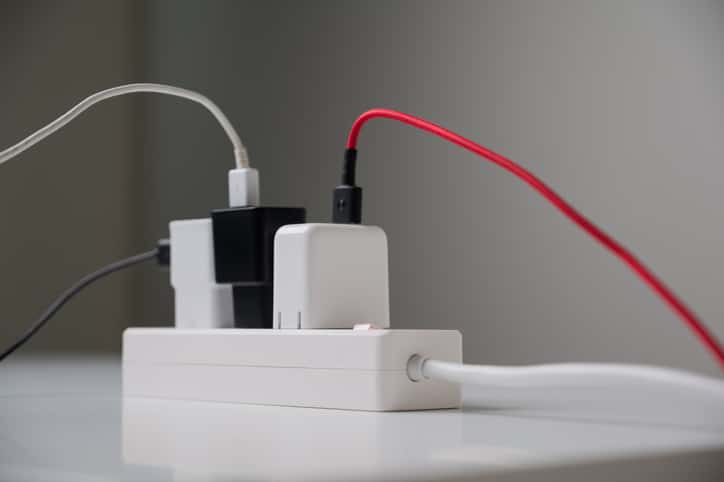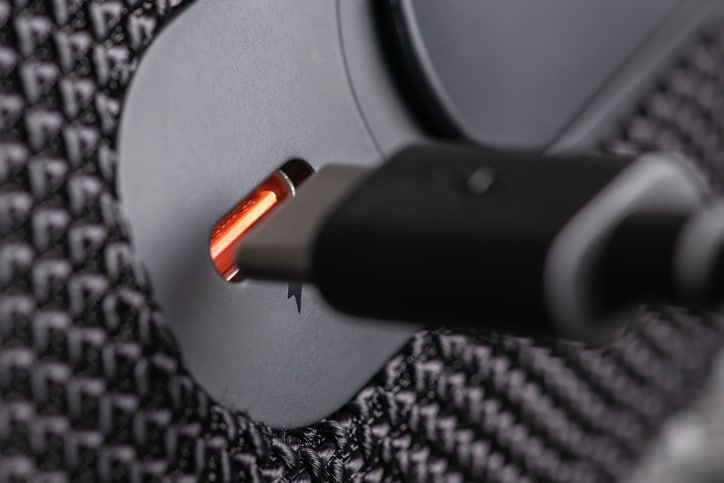If you’re an RV owner, then you know that keeping your vehicle running is important. But what happens when you’re out on the open road and your RV runs out of power? Thankfully, there are a few alternative power options available to you. In this blog post, we’ll look at some of the best options for powering your RV. So, whether you’re looking for a portable backup power source or simply want to explore your options, read on for more information!
Power Conservation Tactics for RVers
Along with deciding how you will power your electronics, you should figure out how to best conserve your electricity. That means making the most of the power you have. Let’s assume you have house batteries for your RV but they are on their own won’t handle all your power needs.
Let’s consider how you charge your laptop. If you charge your laptop via your A/C charger, you convert D/C from the batteries to A/C and back to D/C to your power. This is inefficient. Consider charging your USB-C laptop via D/C from a USB port or external battery.
You can also use battery operating devices that can store power. For example, rather than running your roof fans, you can invest in battery operated fans that can keep you cool without running your RV batteries. Or if you have the means, you could even use a portable air conditioner like the Zero Breeze Mark 2. Allowing it to charge off shore power, your vehicle alternator, or solar power doing the day.

For those devices running off of A/C they can even draw electricity when turned off. You may want to consider using a power strip with an on-off switch that can prevent hat leakage. The same goes for your power inverter. Even when you don’t have anything plugged in, your inverter can drain your batteries. Turn it off when not using it.
Reduce Heating and Cooling Burden
You’ll use quite a bit of battery power to control the temperature in an RV because they are not naturally heat-efficient. It is possible to reduce the amount of power needed for the HVAC system by installing custom RV window shades. In winter, blackout shades trap heat inside the RV to prevent cold drafts.
In summer, RV window shades provide much-needed shade when you’re camping in an exposed area. Keep your RV cool and dark with RV window shades if you don’t want to wake up with the sun. It allows you to conserve battery power and reduce your reliance on A/C. Also, parking in the shade can help prevent your van from heating up.
In addition to saving energy, RV window shades prevent strangers from looking into your home. Places with limited privacy, such as public parking lots, trucking rest areas, and crowded campgrounds, can benefit greatly from this feature.
Alternative RV Power Sources

There are some advantages to having a second power source other than your built-in batteries. Portable power stations can not only provide a backup, but can also be used in your home in the event of a power outage. Also choose appliances that run off D/C when possible. Many appliances from the marine industry, like air conditioners and refrigerators, were made to run off D/C current. Many of those appliances have crossed into the RV industry.
Solar Generators
Solar generators are a great way to power your RV and preserve your internal batteries. These devices can be used to charge your devices, and power your appliances. Solar generators are quiet, efficient, and eco-friendly and combine solar panels with a portable power bank.
These devices are suited for smaller appliances like TVs, blenders, and other appliances. Two popular brands for solar generators are Jackery (affiliate link) and Goal Zero (affiliate link).
Power Banks
Power banks are another great alternative power option for your RV. Charge your devices using a power bank, power your appliances, and even run your air conditioner. Power banks are usually smaller and more portable than solar generators, making them ideal for travel in your RV or otherwise.
I personally like the products from Anker, I have a number of power banks from Anker, and the 26800 mAH is enough to charge my laptop and my other electronics at least once. This is my go-to for charging my MacBook Pro, iPhone, iPad, and other devices when I am traveling for business or camping.
Gas Generators
Gas generators for RVs are my least favorite option as an alternative power option. They are easy to set up and use, and they provide a lot of power for running appliances and other devices while you are on the road. However, they can be loud, unless they are wired into your motorcoach, they require a secondary fuel tank. The biggest advantage is that they can be an affordable way to generate power
Maximize your Power, Maximize Your Freedom
RVing is a great way to see the country and experience all that it has to offer. However, one of the potential drawbacks of this activity is managing your power needs. If you are not vigilant in monitoring your usage and conserving energy, you may find yourself running out of power before you’re ready to go home. By following some simple tips, you can preserve your power and maximize your fun. We hope these tips help make your next trip a great one!

